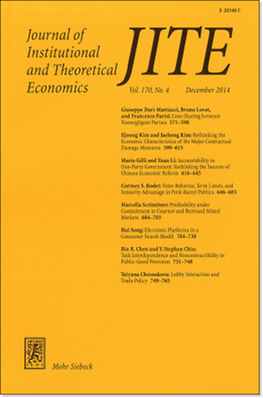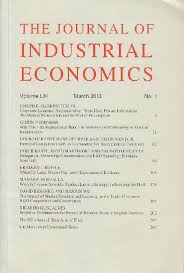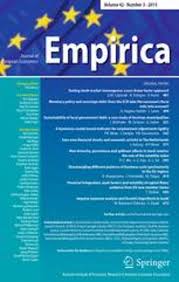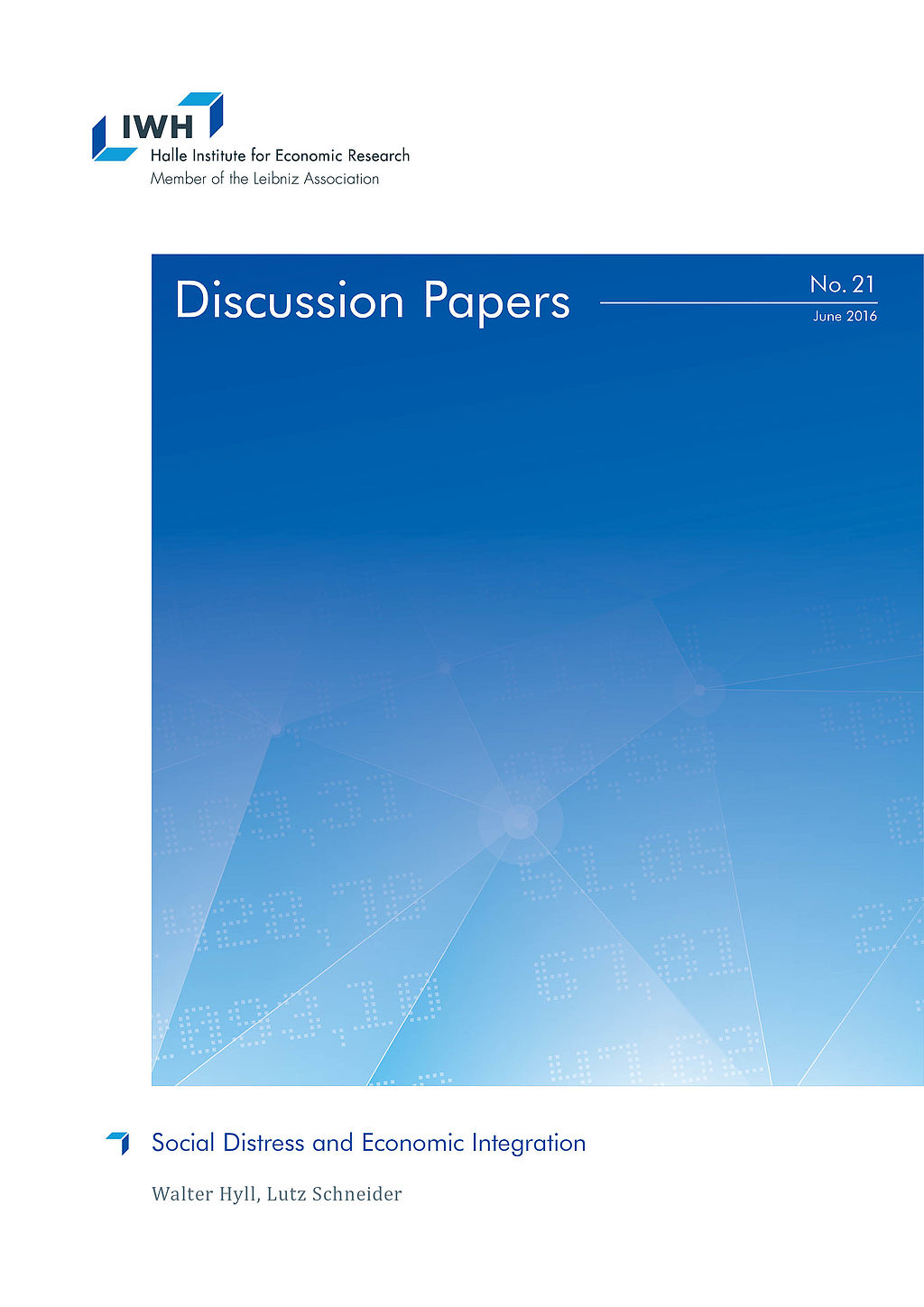Anpassungsfähigkeit und Resilienz des Finanzsystems
Diese Forschungsgruppe untersucht kritische Aspekte der Anpassungsfähigkeit und Widerstandsfähigkeit von Finanzsystemen. Sie analysiert die Auswirkungen von Naturkatastrophen auf Finanzsysteme, die Auswirkungen politischer Präferenzen für die grüne Transformation und die Bedeutung von Kultur in den Volkswirtschaften.
Forschungscluster
Finanzresilienz und RegulierungIhr Kontakt

Mitglied - Abteilung Finanzmärkte
PROJEKTE
07.2016 ‐ 12.2018
Relationship Lenders and Unorthodox Monetary Policy: Investment, Employment, and Resource Reallocation Effects
Leibniz-Gemeinschaft
We combine a number of unique and proprietary data sources to measure the impact of relationship lenders and unconventional monetary policy during and after the European sovereign debt crisis on the real economy. Establishing systematic links between different research data centers (Forschungsdatenzentren, FDZ) and central banks with detailed micro-level information on both financial and real activity is the stand-alone proposition of our proposal. The main objective is to permit the identification of causal effects, or their absence, regarding which policies were conducive to mitigate financial shocks and stimulate real economic activities, such as employment, investment, or the closure of plants.
01.2015 ‐ 12.2019
Interactions between Bank-specific Risk and Macroeconomic Performance
Deutsche Forschungsgemeinschaft (DFG)
Referierte Publikationen

Default Options and Social Welfare: Opt In versus Opt Out
in: Journal of Institutional and Theoretical Economics JITE, Nr. 3, 2013
Abstract
We offer a social-welfare comparison of the two most prominent default options – opt in and opt out – using a two-period model of localized competition. We demonstrate that when consumers stick to the default option, the prevailing default policy shapes firms' ability to collect and use customer information, and affects their pricing strategy and entry decision differently. The free-entry analysis reveals that fewer firms enter under opt out as competition becomes harsher, and that opt out is the socially preferred default option.

Financial Constraints of Private Firms and Bank Lending Behavior
in: Journal of Banking and Finance, Nr. 9, 2013
Abstract
We investigate whether and how financial constraints of private firms depend on bank lending behavior. Bank lending behavior, especially its scale, scope and timing, is largely driven by bank business models which differ between privately owned and state-owned banks. Using a unique dataset on private small and medium-sized enterprises (SMEs) we find that an increase in relative borrowings from local state-owned banks significantly reduces firms’ financial constraints, while there is no such effect for privately owned banks. Improved credit availability and private information production are the main channels that explain our result. We also show that the lending behavior of local state-owned banks can be sustainable because it is less cyclical and neither leads to more risk taking nor underperformance.

Bertrand Competition with an Asymmetric No-discrimination Constraint
in: Journal of Industrial Economics, Nr. 1, 2013
Abstract
Regulators and competition authorities often prevent firms with significant market power, or dominant firms, from practicing price discrimination. The goal of such an asymmetric no-discrimination constraint is to encourage entry and serve consumers' interests. This constraint prohibits the firm with significant market power from practicing both behaviour-based price discrimination within the competitive segment and third-degree price discrimination across the monopolistic and competitive segments. We find that this constraint hinders entry and reduces welfare when the monopolistic segment is small.

Regional Origins of Employment Volatility: Evidence from German States
in: Empirica, Nr. 1, 2013
Abstract
Greater openness for trade can have positive welfare effects in terms of higher growth. But increased openness may also increase uncertainty through a higher volatility of employment. We use regional data from Germany to test whether openness for trade has an impact on volatility. We find a downward trend in the unconditional volatility of employment, paralleling patterns for output volatility. The conditional volatility of employment, measuring idiosyncratic developments across states, in contrast, has remained fairly unchanged. In contrast to evidence for the US, we do not find a significant link between employment volatility and trade openness.

Foreign Bank Entry, Credit Allocation and Lending Rates in Emerging Markets: Empirical Evidence from Poland
in: Journal of Banking and Finance, Nr. 11, 2012
Abstract
Earlier studies have documented that foreign banks charge lower lending rates and interest spreads than domestic banks. We hypothesize that this may stem from the superior efficiency of foreign entrants that they decide to pass onto borrowers (“performance hypothesis”), but could also reflect a different loan allocation with respect to borrower transparency, loan maturity and currency (“portfolio composition hypothesis”). We are able to differentiate between the above hypotheses thanks to a novel dataset containing detailed bank-specific information for the Polish banking industry. Our findings demonstrate that banks differ significantly in terms of portfolio composition and we attest to the “portfolio composition hypothesis” by showing that, having controlled for portfolio composition, there are no differences in lending rates between banks.
Arbeitspapiere

Corporate Governance Structures and Financial Constraints in Multinational Enterprises – An Analysis in Selected European Transition Economies on the Basis of the IWH FDI Micro Database 2013 –
in: IWH Discussion Papers, Nr. 3, 2015
Abstract
In our analysis, we consider the distribution of decision power over financing and investment between MNEs’ headquarters and foreign subsidiaries and its influence on the foreign affiliates’ financial restrictions. Our research results show that headquarters of multinational enterprises have not (yet) moved much decision power to their foreign subsidiaries at all. We use data from the IWH FDI Micro Database which contains information on corporate governance structures and financial restrictions of 609 enterprises with a foreign investor in Hungary, Poland, the Czech Republic, Slovakia, Romania and East Germany. We match data from Bureau van Dijk’s AMADEUS database on financial characteristics. We find that a high concentration of decision power within the MNE’s headquarter implicates high financial restrictions within the subsidiary. Square term results show, however, that the effect of financial constraints within the subsidiary decreases and finally turns insignificant when decision power moves from headquarter to subsidiary. Thus, economic policy should encourage foreign investors in the case of foreign acquisition of local enterprises to leave decision power within the enterprise and in the case of Greenfield investment to provide the newly established subsidiaries with as much power over corporate governance structures as possible.


















